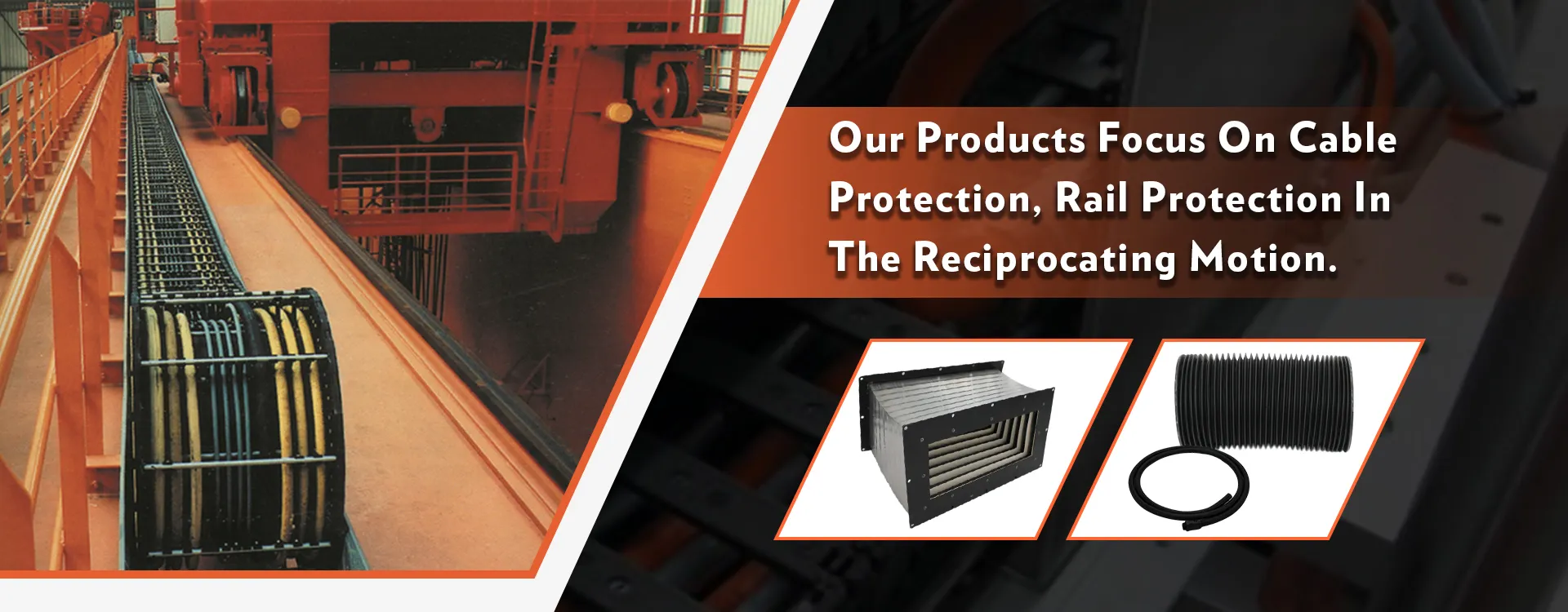Plastic Flexible Cable Management Solutions for Efficient Industrial Applications
Understanding Plastic Flexible Cable Carrier Chains
In the ever-evolving landscape of industrial machinery and automation, the importance of efficient and organized cable management cannot be overstated. One of the most innovative solutions designed to support this need is the plastic flexible cable carrier chain. These components play a critical role in various applications across different industries, ensuring that cables, hoses, and other components are securely guided and protected during movement.
What is a Plastic Flexible Cable Carrier Chain?
A plastic flexible cable carrier chain, often referred to as a cable track or drag chain, is an engineered component designed to house and protect various types of cables and hoses. They provide a convenient, flexible solution that allows cables to be moved safely and efficiently, especially in dynamic environments where machinery is subject to constant motion, such as CNC machines, robotic arms, and conveyor systems.
Construction and Design
Plastic flexible cable carrier chains are typically made from high-strength, durable plastics such as nylon or polypropylene. This construction not only offers significant weight savings compared to traditional metal carriers but also provides excellent resistance to chemicals, abrasion, and environmental factors. The design of these chains includes a series of links that can bend and flex while maintaining the integrity of the cables housed within them. This flexibility is crucial in applications where machines undergo continuous, repetitive motions.
Moreover, plastic cable carriers are designed with open or closed compartments that can accommodate various cable sizes and shapes, ensuring compatibility with different systems. The ease of assembly and customization makes these chains a versatile solution for any factory floor.
Advantages of Plastic Flexible Cable Carrier Chains
1. Flexibility and Mobility The fundamental benefit of a flexible cable carrier is its ability to accommodate movement. It can handle multidimensional movement—including linear, rotary, and bending paths—which is essential in robotic and automated systems.
plastic flexible cable carrier chain

2. Durability Plastic carriers are often resistant to a range of chemicals, oil, and other environmental agents, making them suitable for use in demanding situations like manufacturing and packaging.
3. Reduced Maintenance By keeping wires and cables organized and protected, these chains minimize wear and tear. This arrangement reduces the frequency and costs associated with replacements and repairs, ensuring that machinery operates without unnecessary downtime.
4. Ease of Installation Many plastic cable carrier chains come with user-friendly designs that allow for quick and easy installation. This capability is particularly beneficial in fast-paced industrial settings where minimizing installation time is a priority.
5. Cost-Effectiveness While initial investment costs may vary, the long-term savings associated with reduced maintenance and downtime make plastic flexible cable carrier chains an economically viable choice for many businesses.
Applications in Different Industries
Plastic flexible cable carrier chains find application in numerous industries, including automation, automotive manufacturing, renewable energy, and material handling systems. In robotics, they aid in managing the extensive wiring required for electronic controls, while in manufacturing, they organize power and signal cables in moving machinery.
Additionally, their lightweight yet durable nature makes them an attractive option for industries requiring mobile solutions that can withstand rigorous operational conditions without compromising performance.
Conclusion
The emergence of plastic flexible cable carrier chains has revolutionized the way industries approach cable management. By offering flexibility, durability, and reduced maintenance needs, these chains are an indispensable tool in modern manufacturing and automation processes. As industries continue to seek effective solutions to accommodate growing technological demands, the role of plastic cable carrier chains will undoubtedly expand, shaping the future of machinery and design operations worldwide.








